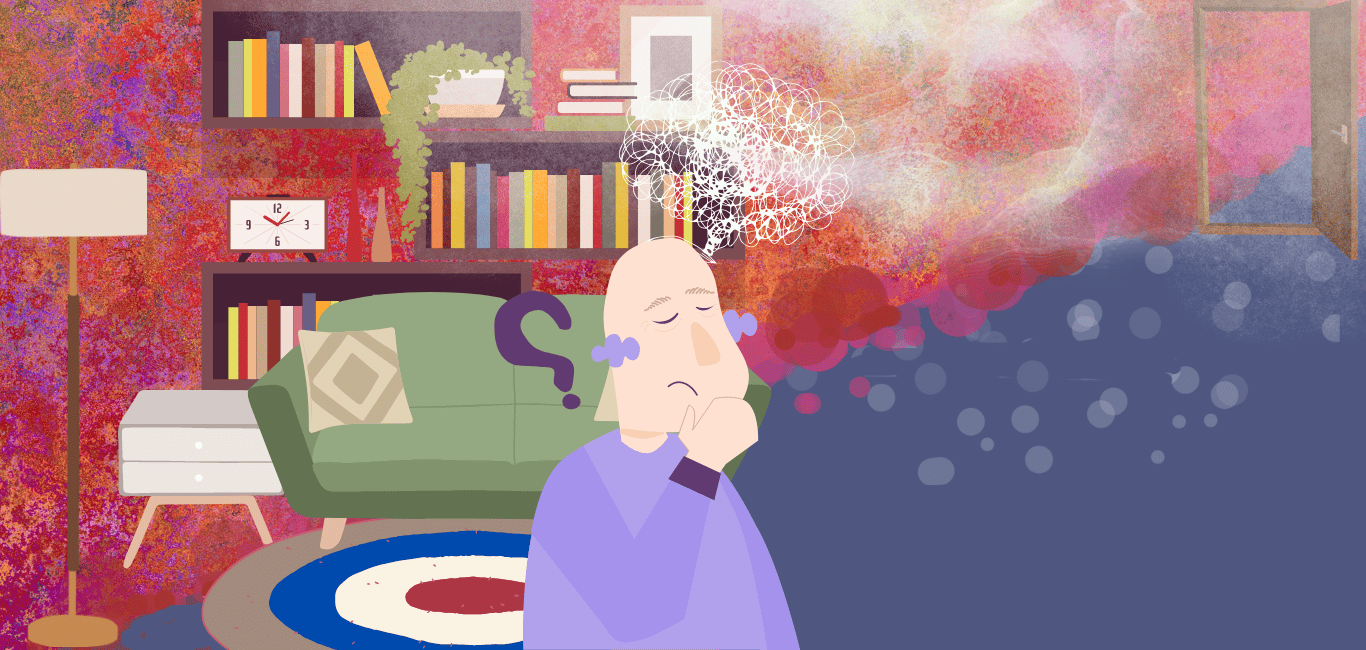
Not being able to button one’s shirt or navigate back home can sound scary but it is a reality for those with moderate-stage dementia, a neurogenerative disease spectrum. It’s never too late to start focusing on reducing the risks of dementia to prevent and delay the onset of the disease.
One must work on reducing risk when they are fully well and not after they have signs of dementia, say experts pointing out that risk reduction is for those who do not have any memory symptoms.
Dementia is an umbrella term used for several diseases affecting one’s memory, cognitive abilities, and behavior. Dementia is a neurodegenerative disease that is irreversible, and it needs more awareness, says Dr Radha S Murthy, president of Dementia India Alliance, Bangalore. “The disease makes the person lose memory, disorientation, wander, and increase dependency. It’s not just the person with the disease who is affected but also caregivers of persons with dementia in the family who find it very difficult to attend to them,” she said.
“If we focus on the risk factors, we could possibly prevent dementia,” says Dr Mathew Varghese, senior professor of psychiatry, formerly with National Institute of Mental Health and Neuro Sciences (NIMHANS), Bangalore. “About 50% of the dementia burden can be reduced by addressing the risk factors. If you’re young, you can probably prevent it by focusing on risk factors,” he said.
What are the risks of dementia?
Alzheimer’s disease is the most common type of dementia. The theme for 2023 Alzheimer’s Disease Awareness Month ‘Never too early, never too late’ highlights the risk factors and risk reduction.
Dr Varghese says that as of now, there are 12 – 16 risk factors that may increase over the period.
Alzheimer’s Disease International has listed 12 modifiable risk factors of dementia which can prevent or delay 40% of dementia by modifying all the risk factors early.
- Physically inactivity: Regular physical activity helps in improving heart function, blood circulation, weight management and mental wellbeing.
- Smoking: It not only increases the risk of dementia but also other risk factors such as type 2 diabetes. Quitting cigarettes later in life too reduces the risk of dementia.
- Excessive alcohol consumption: Drinking anything more than 21 units weekly increases the risk of dementia.
- Air pollution: Being exposed to air pollution increases the risk of dementia.
- Head Injury: Head injuries due to any accidents, sports, assaults or falls can increase the risk of dementia.
- Infrequent social contact: Social contact enhances cognitive reserve and reduces the risk of dementia.
- Less education: Low level of education in early life affects one’s cognitive reserve which is a significant risk factor.
- Obesity: Mid-life obesity is associated with dementia and can be addressed through lifestyle changes.
- Hypertension: High blood pressure not only causes other health problems but also increases the risk of dementia.
- Diabetes: Type 2 diabetes is a clear risk factor for dementia and managing it helps in delaying it.
- Depression: Depression is associated with dementia incidence and it is important to manage and treat it.
- Hearing Impairment: Though people with hearing loss have a significant risk of dementia, using hearing aids seem to have reduced the risk.
Early detection and diagnosis
Those with hypertension, obesity, and diabetes are at risk of dementia and such people need to start early screening for dementia, says Dr Varghese. “People can start screening when they are in their 40s or 50s. There are many online dementia tests that help to detect if one has any issues with memory or cognitive abilities. If they have evident signs of memory issues, they can visit a memory clinic to get diagnosed,” he said.
How to prevent dementia?
Keeping one’s mind active and busy helps in reducing the risks of dementia, says Dr Murthy. “There is a lack of awareness among people and being aware of dementia and its risks helps in early detection and delay the onset of the disease,” she said.
Any mental activity is good to stimulate the brain, says Dr Varghese. “Just as physical exercise, brain exercise is crucial to keep it active. Any mental and social activities such as meeting people and talking to them or playing sudoku, chess, or reading newspapers, will keep the brain active and healthy,” he said.

Takeaways
- Dementia is an umbrella term used for several degenerative diseases affecting one’s memory, cognitive abilities, and behavior.
- Alzheimer’s disease is the most common type of dementia.
- Knowing the risk factors and working towards them helps in preventing and delaying dementia.
- Those with risks of dementia need to screen themselves through online tests and if they have evident signs, they need to visit the memory clinics to get diagnosed.


















One Response
arpityadav24449@gmail.com